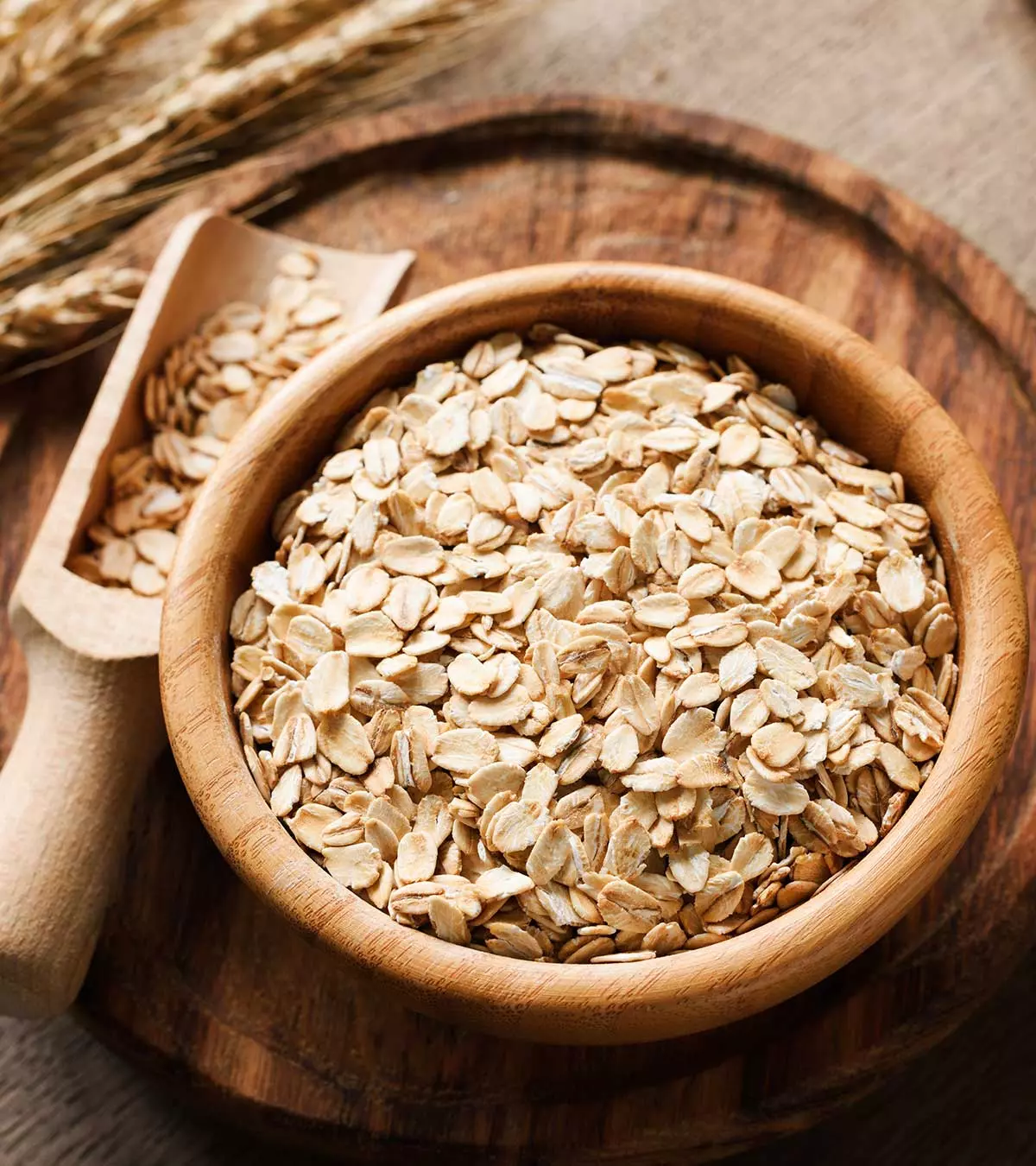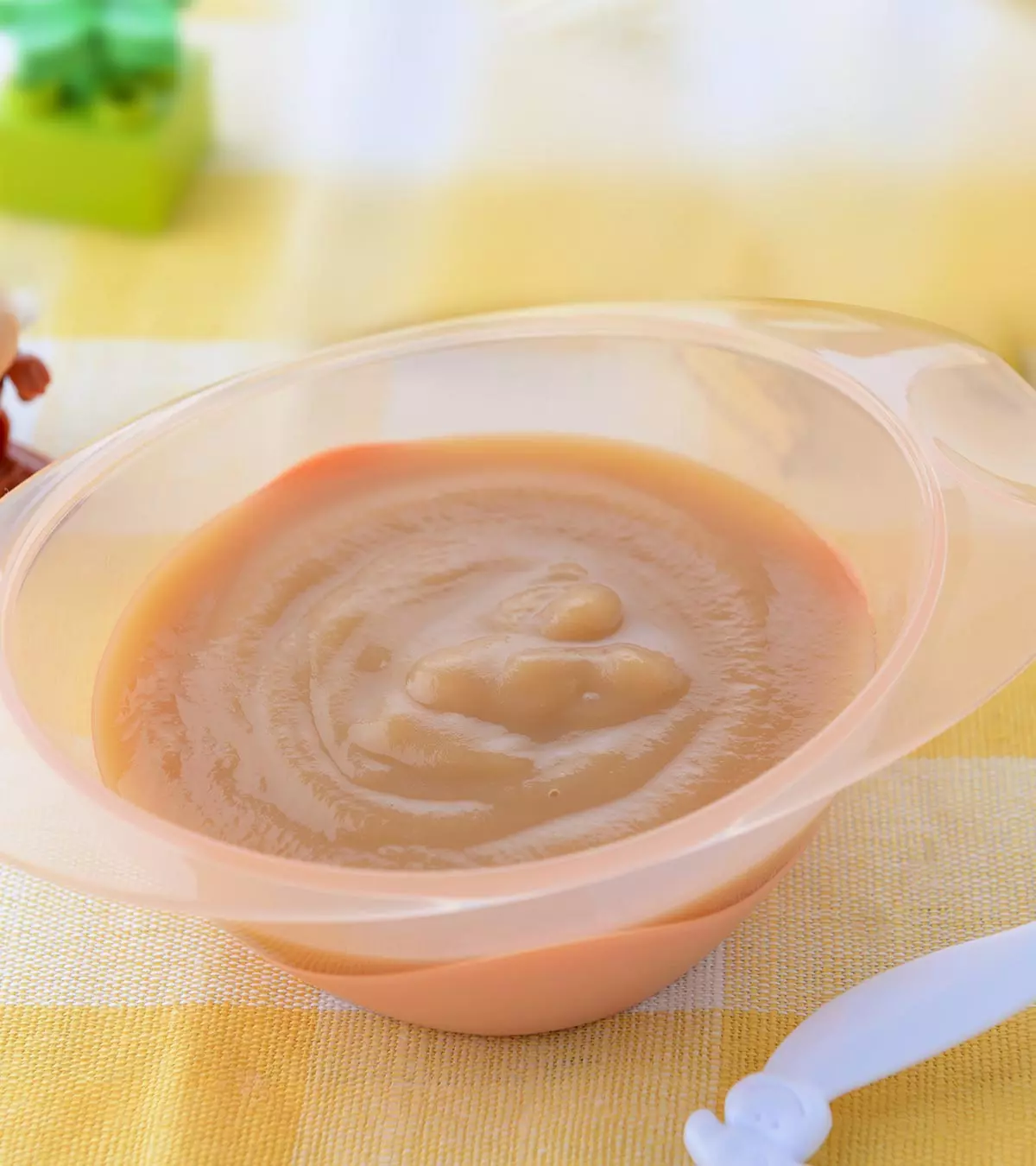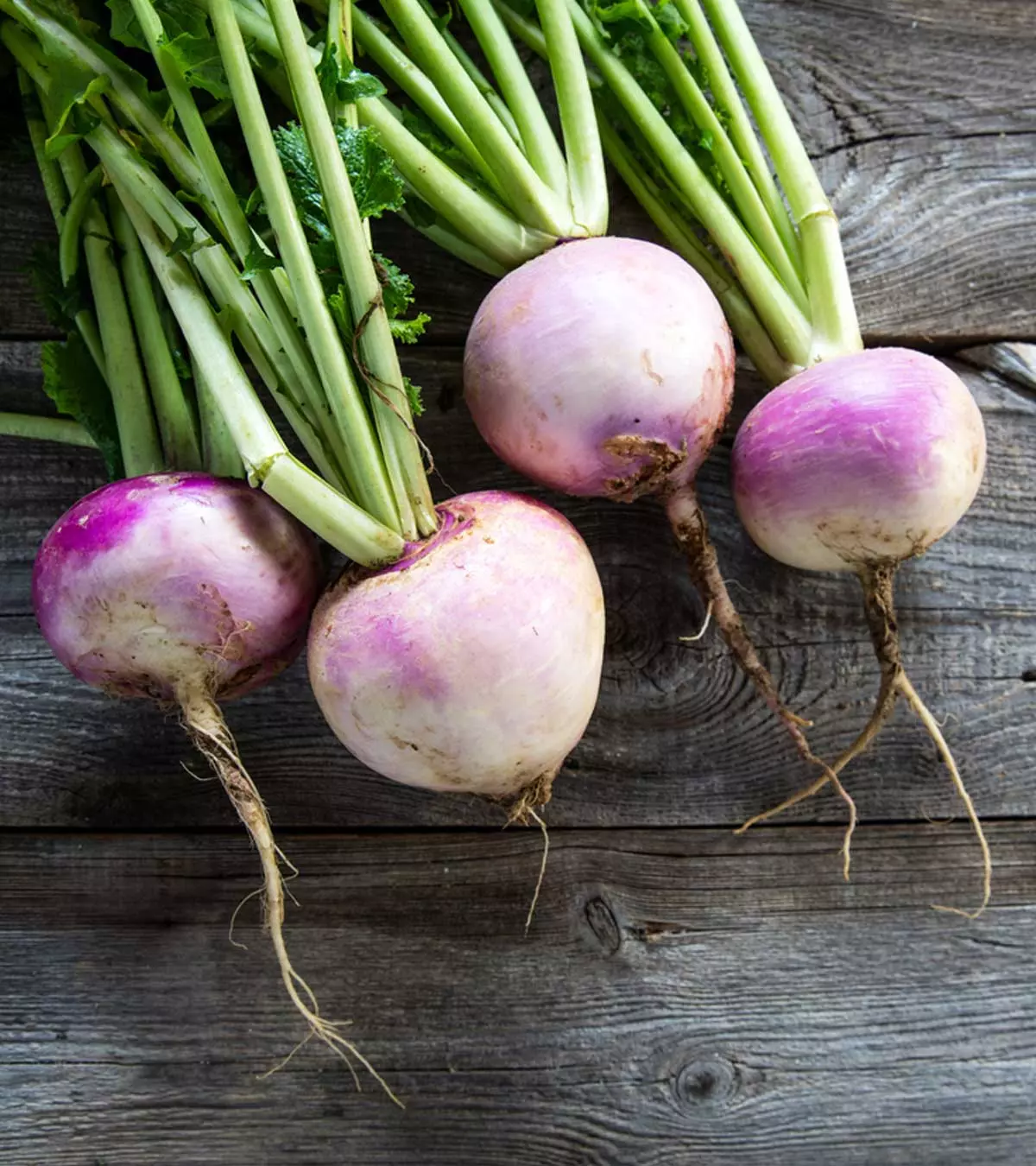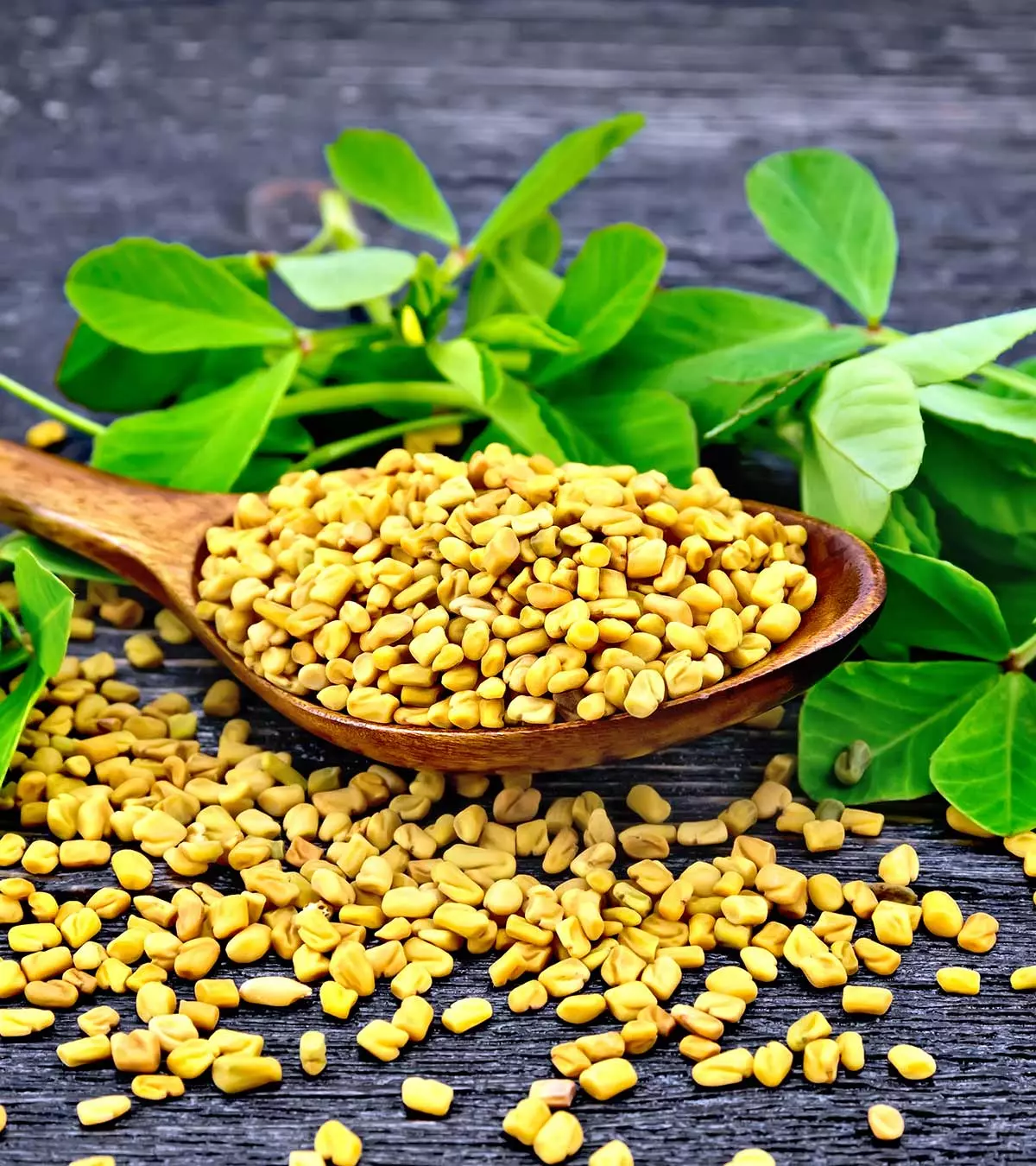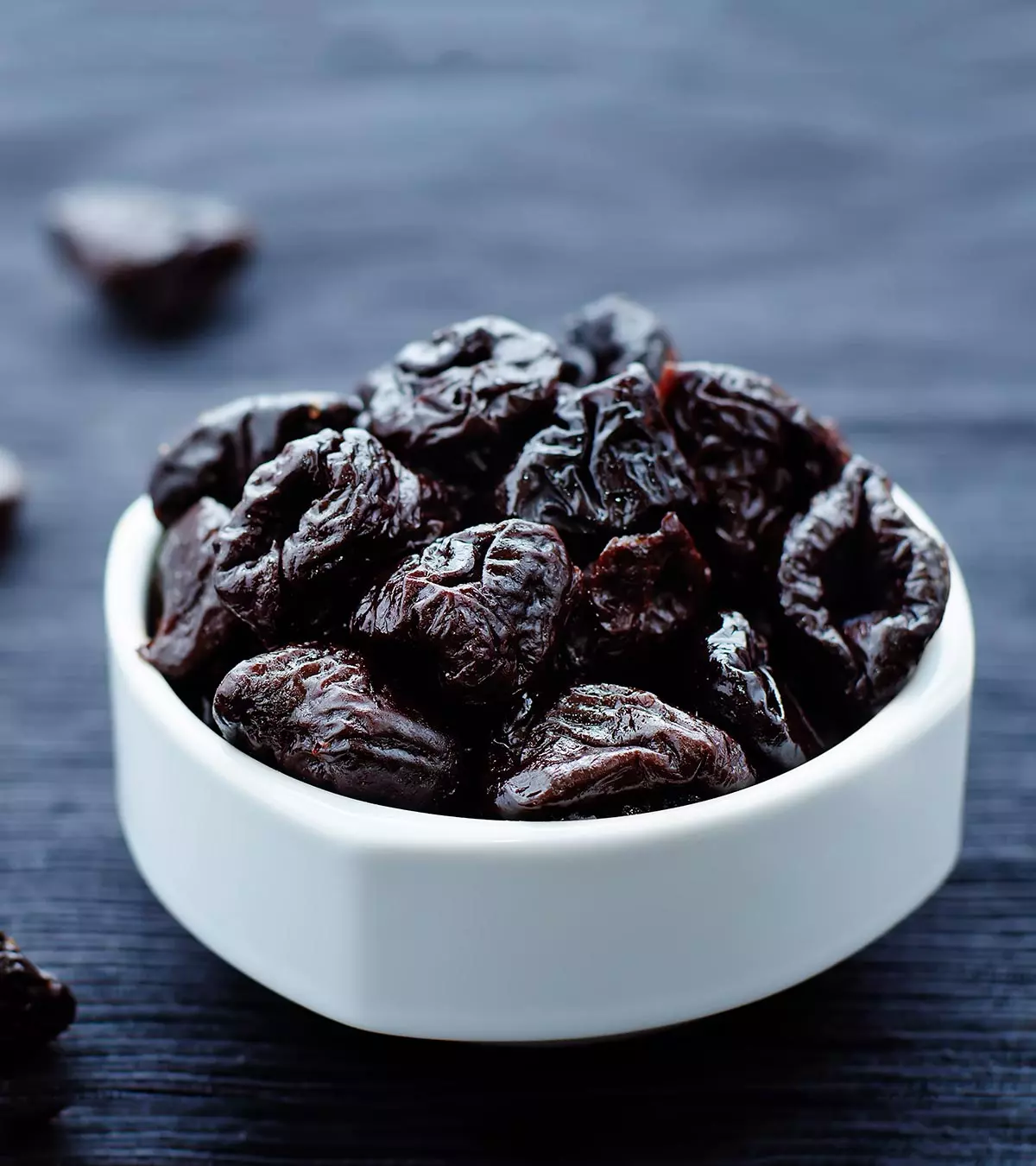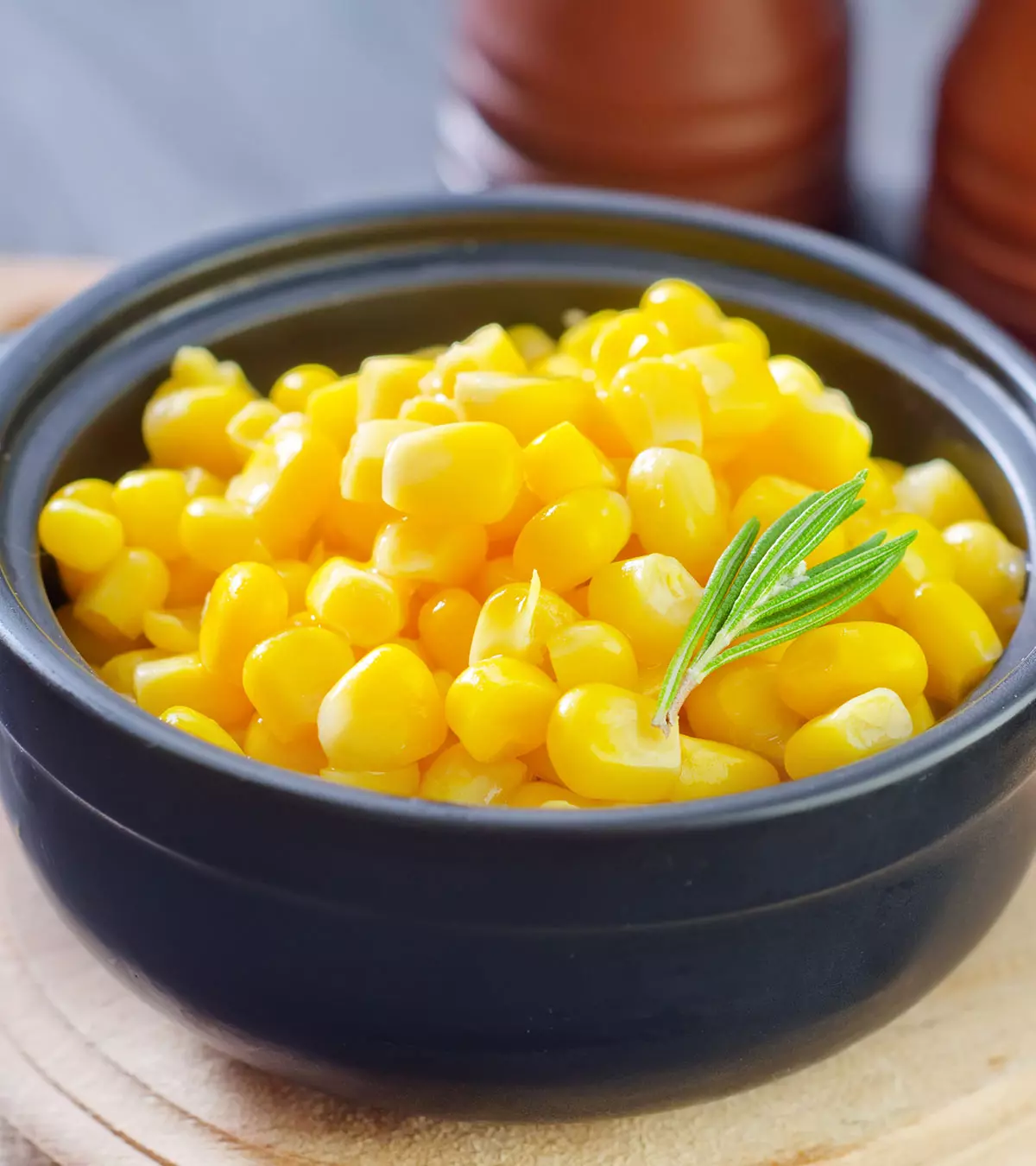
Image: Shutterstock
A pregnancy diet should contain all the required nutrients. Consumption of spinach during pregnancy can provide you with protein, minerals, iron, and vitamins, which are crucial for your health and your baby’s development. Spinach belongs to the Amaranthaceae family of flowering plants and offers several health benefits. Read on to learn more about the benefits and potential side effects of spinach for pregnant women.

Key Pointers
- Spinach is a nutrient-dense, green leafy vegetable that is rich in folate, iron, calcium, and several other essential nutrients for pregnant women.
- Including spinach in the diet during pregnancy can help prevent birth defects in the developing fetus and other pregnancy-related complications.
- Spinach should be thoroughly washed and cooked before consumption to reduce the risk of foodborne illness.
- It is advised to consume spinach within the recommended limits during pregnancy as excessive intake may cause diarrhea, and its high oxalate content can alter the absorption of calcium.
- Pregnant women with a history of kidney stones or other kidney disorders should consult their doctor before consuming spinach.
Is It Safe To Eat Spinach During Pregnancy?
You can consume spinach during pregnancy, but in moderation. Spinach contains folic acid, which is one of the essential nutrients that pregnant women should include in their diet. Folate or folic acid helps prevent birth defects (1).
This green leafy vegetable also contains iron, which is another vital nutrient required in pregnancy (2). But see that you are not consuming spinach in excess. For instance, if you are susceptible to kidney stones, then you may want to cut down the consumption of spinach.
Nutritional Facts Of Spinach
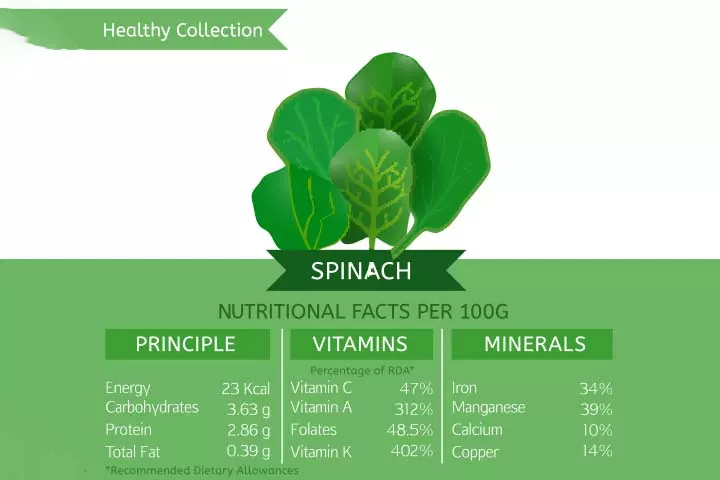
Spinach is rich in vitamins A, C, E, and K, magnesium, folate, potassium, iron, and copper. It is also a good source of omega 3 fatty acids, dietary fiber, and flavonoidsiA group of natural substances commonly found in fruits, vegetables, and grains that offer various health benefits. (3).
According to the US Department of Agriculture, 100 grams of spinach contains 23kcal, 99mg calcium, 79mg magnesium, 558mg potassium, 28.1mg vitamin C, and 194µg folate. In addition, it also has 79mg sodium and 49mg phosphorus .
All these nutrients of spinach can be beneficial to the mother and the baby.
Benefits Of Spinach During Pregnancy
The nutrients in spinach can be helpful in the below-mentioned ways:
- Iron and folic acid: During pregnancy, the blood volume in the body goes up by 30 to 50% (4) that can increase iron and folic acid requirement of the body. In 2019, the World Health Organization reported a global prevalence of 36.5% for anemia in pregnant women. Regularly consuming spinach may help meet the iron requirements of the body and prevent anemia.
- Calcium: Increased calcium levels may result in low blood pressure, while low levels of calcium may lead to hypertension in pregnancy. The bioavailability of calcium in spinach might help in maintaining the blood pressure levels (5). Thus it may help prevent gestational hypertension.
- Vitamins: Spinach, a rich source of vitamins A and C micronutrients, may help strengthen the immune system (6). Spinach can help you meet the daily requirement of vitamin A, which is required for your health as well as fetal development (7).Consuming spinach during pregnancy adds to your daily intake of vitamin B, which is essential for the development of the baby’s nervous system (8). Adequate intake of prenatal vitamins may also help prevent several birth defects. In addition, the doctor may recommend prenatal vitamins to ensure optimal nutrient absorption. Spinach is also high in antioxidants, which can help strengthen the immune system of pregnant women and help fight infections.

 Quick fact
Quick factHow Much Spinach Should You Have During Pregnancy?
The American Pregnancy Association recommends two to three servings of leafy green vegetables such as spinach a day for pregnant women. Each serving size is approximately one cup (9). Excess consumption of spinach might lead to some adverse effects.
Possible Side Effects Of Eating Spinach During Pregnancy
Ingesting too much of spinach when pregnant can result in some side effects such as:
- Kidney stones: Pregnant women could have more chances of developing calcium phosphate stones, especially during the second and third trimester. Also, high intake of oxalateiAn organic compound usually found in leafy greens that can bind to minerals to form compounds. foods may result in urinary tract infections. However, consuming spinach in moderate amounts may not pose this risk (10).
 Quick tip
Quick tip- Diarrhea: Expecting moms are susceptible to listeriosisiAn infection caused by eating contaminated food. and salmonellosisiA food infection caused by a bacteria called Salmonella. . Spinach leaves may have bacterial contaminants that could lead to diarrhea. Therefore, always wash the leaves properly before consumption (11).

- Salicylate allergies: Salicylate, especially in the third trimester, can cause bleeding and prolong the labor. As spinach contains salicylateiAn over-the-counter drug used to reduce pain, fever, and inflammation. , minimize its consumption in the last couple of months of pregnancy (12) (13).
It is recommended you wash the leaves thoroughly and cook them properly to eliminate potential contaminants. Moderation in intake is also key to avoiding excessive oxalate consumption.
Ways To Include Spinach In Pregnancy Diet
Prenatal nutrition plays a crucial role in promoting maternal health and fetal development. However, it is important to follow dietary recommendations and consume a balanced diet, as excessive intake of certain nutrients can be harmful.
- Prepare spinach soup and enjoy it for your lunch or dinner
- Spinach omelet with cheese is not only healthy but also delicious

- A glass of nutritious spinach smoothie could be a healthy choice
- You may include spinach in your vegetable salad as well
- Sauté spinach in olive oil and garlic, and have it with bread
 Quick tip
Quick tipSpinach Recipes For Pregnancy
Spinach soup
You will need:
- 25g butter
- 1 onion (large, finely chopped)
- 1 clove of garlic (crushed)
- 2 tsp chopped chives
- 900 ml vegetable/chicken stock
- 700g chopped spinach
- 100gm cream cheese
- A pinch of grated nutmeg
How to:
- Lightly fry chopped onion and garlic in melted butter until softened
- Add the chopped chives, spinach, and stock to the same pan
- Bring the mixture to a boil and turn down the heat. Simmer for 5 minutes until spinach looks well wilted
- Remove from heat and blend until smooth
- Stir in cream cheese and freshly grated nutmeg
- Simmer gently for a few more minutes to let the flavors seep and serve
Spinach and tomato frittata
You will need:
- 4 eggs (beaten)
- 60g chopped spinach leaves
- 100g sliced cherry tomatoes
- 1 medium onion
- 1 clove garlic
- 1 tbsp olive oil
How to:
- Preheat the grill
- Finely chop the onion and mince the garlic
- Heat olive oil in a frying pan and cook the onion and garlic until golden
- Add spinach and tomatoes and sauté for about three minutes.
- Add the beaten eggs to the vegetables.
- Cook until the base has set on medium heat.
- Remove from heat and transfer the pan to the preheated grill
- Allow the top to cook and become golden
- Serve hot
Next, we answer some questions about spinach intake during pregnancy.
Frequently Asked Questions
1. Can I eat raw spinach when pregnant?
Yes, you can eat raw spinach when pregnant. However, when consuming raw vegetables during pregnancy, buying fresh and washing well is important. Buy fresh spinach and clean it thoroughly under cold water to ensure its safety. You can also use a vegetable brush to remove dust and dirt from the spinach leaves’ surface.
2. Does spinach cause gas during pregnancy?
Spinach is a fibrous vegetable that facilitates smooth digestion. However, its excessive consumption, especially in raw form, can cause gas and heartburn in some expecting mothers.
3. Can spinach help with common pregnancy issues such as constipation and anemia?
Constipation and anemia are common during pregnancy. Spinach contains iron, which can help to-be-mothers dealing with anemia. Moreover, spinach is a rich source of fiber and can help with smooth bowel movement, thereby preventing constipation (16).
4. Can I eat spinach daily when pregnant?
Obstetrician and gynecologist Dr. Himali Maniar Patel says, “Including spinach in a regular pregnancy diet is beneficial because it is low in calories and rich in nutrients. It also helps maintain healthy hemoglobin levels and supports fetal development. However, it is also important to vary your diet with other vegetables to get a broad spectrum of nutrients.”
Consuming spinach during pregnancy is safe and may offer you essential pregnancy nutrients, including protein, minerals, iron, and vitamins. However, stick to eating spinach in moderation to avoid deficiency or overconsumption. If you like the taste of this green leafy vegetable, you may incorporate it into your pregnancy diet as a soup, smoothie, salad, snack dips, or as an ingredient in various meals such as scrambled eggs, sandwiches, and more. Also, ensure to use fresh spinach leaves that have been thoroughly washed before use.
Infographic: Benefits And Risks Of Eating Spinach When Pregnant
Spinach is a green leafy vegetable recommended for a balanced diet. Though it is beneficial for expectant mothers, overeating might be detrimental. To learn more about the advantages and disadvantages of eating spinach while pregnant, see the infographic below. Illustration: Momjunction Design Team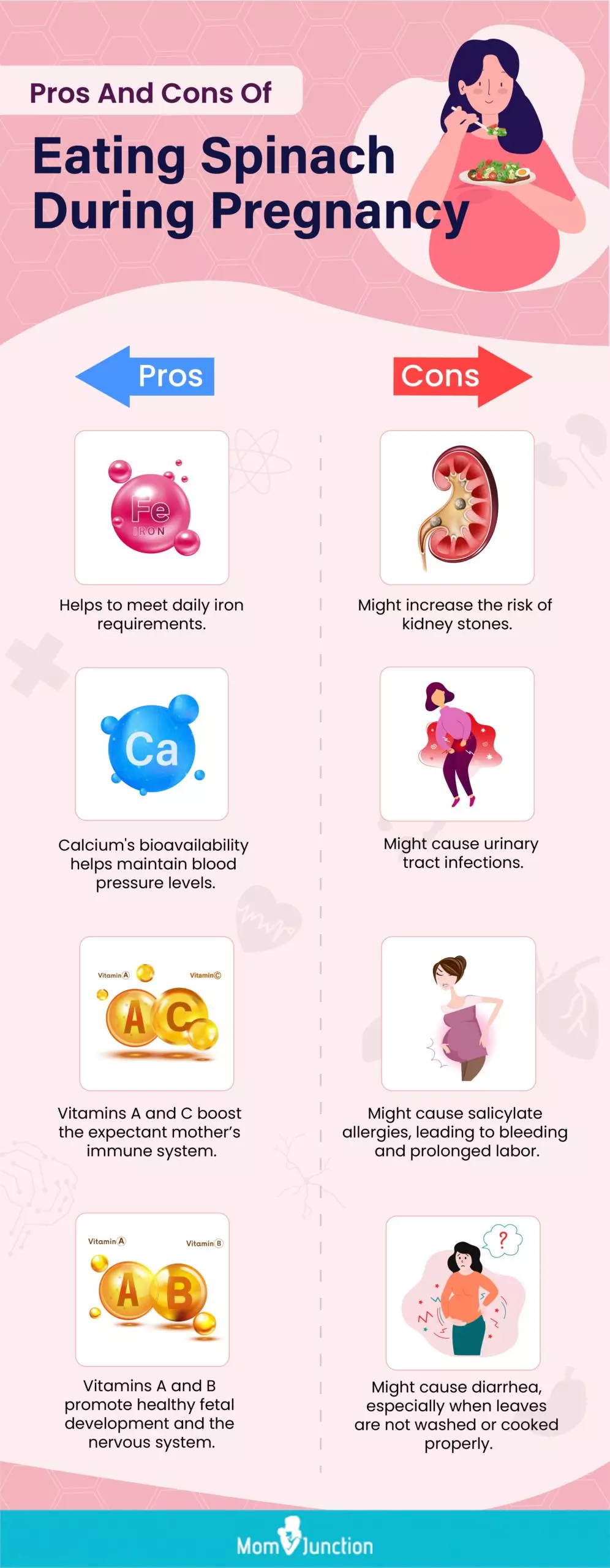
Illustration: Spinach During Pregnancy: Health Benefits And Side Effects

Image: Stable Diffusion/MomJunction Design Team
Eating spinach during pregnancy can benefit both mother and the baby, but it is important to be aware of its potential side effects as well. Learn more in this video!
References
1. Health Tips for Pregnant Women; National Institute of Diabetes and Digestive and Kidney Diseases
2. Anemia and Pregnancy; University of California San Francisco
3. Spinach, raw; United States Department of Agriculture
4. Priya Soma-Pillay et al., Physiological changes in pregnancy; National Center for Biotechnology Information
5. Calcium; Oregon State University
6. Nutrition; Allina Health
7. Vitamin A; National Institutes of Health
8. Spinach; Foundation Louis Bonduelle
9. Healthy Eating While Pregnant; American Pregnancy Association
10. L. Frassetto & I. Kohlstadt, Treatment and Prevention of Kidney Stones: An Update; American Academy of Family Physicians
11. S. K. Mritunjay and V. Kumar, A study on prevalence of microbial contamination on the surface of raw salad vegetables; Indian Institute of Technology
12. Salicylate (Oral Route, Rectal Route); Mayo Clinic
13. J. Hennecke, Salicylic add – a problem substance for allergy sufferers (2014)
14. Spinach. Washington State University
15. J. Hennecke, Reducing Oxalates. Washington College
16. High-fiber foods. Medline Plus
Community Experiences
Join the conversation and become a part of our nurturing community! Share your stories, experiences, and insights to connect with fellow parents.
Read full bio of Claudia Wilson
- Dr. Himali M Patel is an Ahmedabad, India based gynecologist with 13 years of experience. She currently practices at Nisha Women's Hospital and IVF Centre. Dr. Patel did her graduation in Medicine at Bharati Vidyapeeth University, Pune and holds a diploma in Obstetrics and Gynecology.
 Dr. Himali M Patel is an Ahmedabad, India based gynecologist with 13 years of experience. She currently practices at Nisha Women's Hospital and IVF Centre. Dr. Patel did her graduation in Medicine at Bharati Vidyapeeth University, Pune and holds a diploma in Obstetrics and Gynecology.
Dr. Himali M Patel is an Ahmedabad, India based gynecologist with 13 years of experience. She currently practices at Nisha Women's Hospital and IVF Centre. Dr. Patel did her graduation in Medicine at Bharati Vidyapeeth University, Pune and holds a diploma in Obstetrics and Gynecology.
Read full bio of Swati Patwal
Read full bio of Rebecca Malachi
Read full bio of Aneesha Amonz






